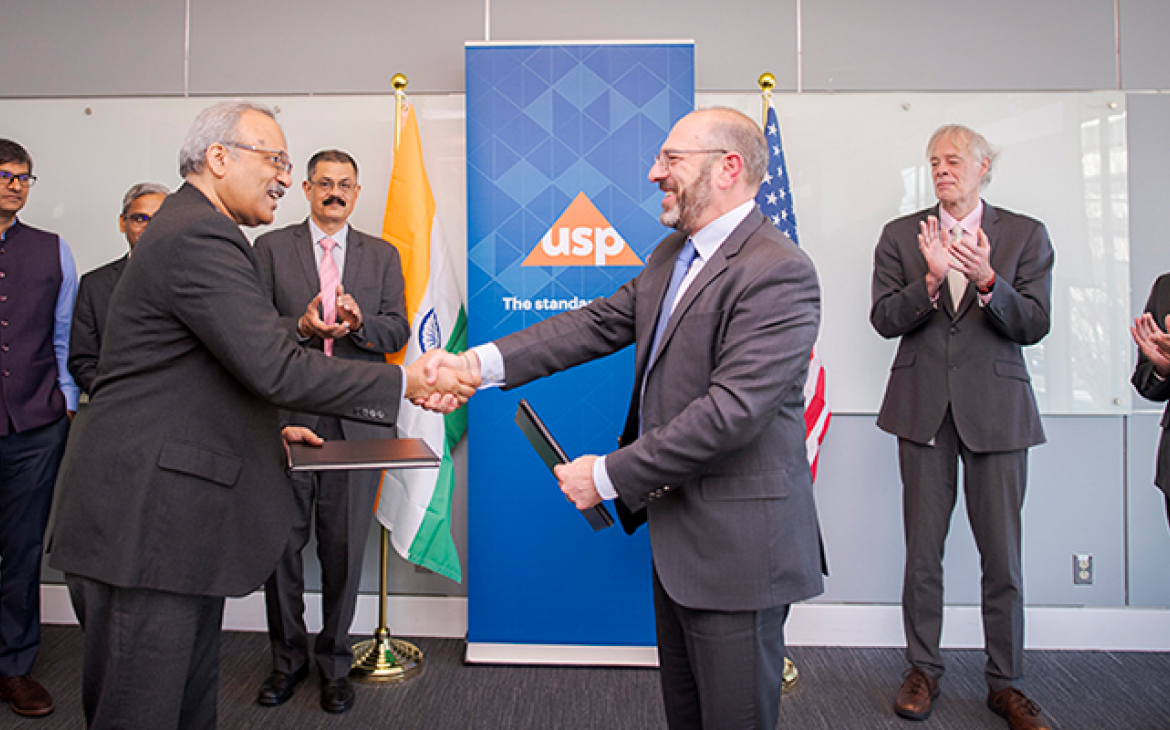
Recently, I was privileged to serve as a private advisor member of the U.S. delegation to the 68th World Health Assembly (WHA) at the United Nations compound in Geneva Switzerland (the governing body of the World Health Organization).
The U.S. delegation was led by Secretary of Health and Human Services (HHS), Sylvia Burwell. In addition, there were delegations from nearly 200 other sovereign entities plus approximately 100 leaders from non-governmental organizations (including USP Board member Jeff Sturchio).
This year’s meeting focused on topics ranging from WHO reform to antimicrobial resistance; from the Ebola response and preparation for global health threats to communicable and non-communicable diseases.
How Does It All Work?
The WHA is a premier annual global public health forum – one that takes some time to learn and understand.
As a member of the US delegation, I was fortunate to experience all of its components. I represented the US government in the main hall during parts of the 194 five-minute addresses delivered by each country's Minister of Health (MoH), including U.S. Secretary Burwell. You can read the Secretary’s remarks here.
I also attended two drafting sessions open only to member states. Witnessing these drafting sessions was incredible. Over 100 country delegations (as many as 300 people at any given time) line edit word-by-word official WHO policies. As one can imagine, this is a thoughtful and deliberate process--fascinating in its complexity, as country alliances form and reform as each new section and paragraph is edited.
Where USP Fits
The time spent with Secretary Burwell and her leadership from the HHS Office of Global Affairs (HHS OGA) was incalculably helpful, and her insights and advice will help me to more effectively advance USP’s causes at a global level. Her counsel on how to maximize USP’s impact across the world—striking a balance between ambition and patience—will serve USP well.
Quality is a pillar of global public health. There was little addressed at WHA that wasn’t somehow related to quality. This creates a natural synergy between USP and many of the world’s leading public health organizations. Quality is a key component of many contemporary health challenges, policies, and solutions. And it is the foundation upon which USP was built. For years, the U.S. delegation to the WHA has played an essential role in advocating for quality improvement in the global public health landscape--an effort I hope USP may contribute to in the years to come, particularly as it relates to combating substandard and counterfeit medicines, regulatory system strengthening, supply chain security and quality, and more.
Working alongside the U.S. delegation, the WHO and its member states, and attending WHA were enlightening experiences. I took away an improved, nuanced understanding of how global public health collaboration works and how to navigate this complex landscape and its processes. I also took this opportunity to examine where USP fits as a contributor among the issues presented and discussed.
This experience reinforced for me USP’s global relevance, and enables me to affirm for our current and future collaborators and partners the essential role USP can play in quality improvement worldwide.
To learn more about USP's public health impact read this article.
Ronald T. Piervincenzi, Ph.D., is the chief executive officer of USP. Follow him on Twitter @RonPiervincenzi


